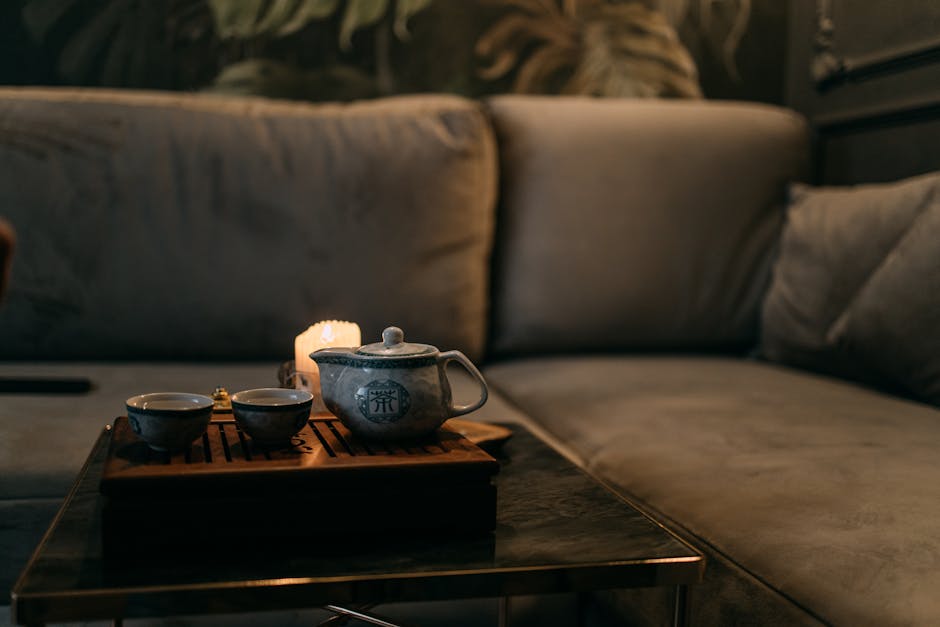Evenings at home are the perfect chance to unwind and reset after a busy day. A relaxing routine can transform your nights into a peaceful sanctuary.
Whether you’re juggling chores, family, or just life in general, these simple steps are designed to help homemakers like you find calm and comfort. No fancy tools or hours required — just gentle habits that soothe your soul.
Creating a cozy evening routine is all about small, intentional actions that bring you joy and relaxation. Think of it as your nightly gift to yourself.
Ready to slow down and savor your evenings? Let’s dive into 21+ simple steps that can make your homemaker evenings more restful and fulfilling.
By the end, you’ll have a toolkit of easy, practical ideas to tailor your perfect relaxing routine. Let’s get started!
Here’s to peaceful evenings and refreshed mornings ahead.
Setting the Atmosphere for Relaxation
The way your home feels in the evening plays a huge role in how relaxed you become. Setting the right mood can make all the difference between a stressful night and a restful one.
Think about your senses: sight, sound, and smell. Soft lighting, calming aromas, and gentle sounds can signal to your brain that it’s time to unwind.
Creating a cozy environment is the first step to inviting calm into your space and mind.
1. Dim the lights – Lowering bright overhead lights and switching to lamps or candles helps your body produce melatonin, the sleep hormone. This shift gently nudges your brain toward relaxation and rest.
2. Light a scented candle or use essential oils – Scents like lavender, chamomile, or sandalwood are known for their calming effects. Incorporating these aromas can reduce stress and create a spa-like atmosphere at home.
3. Play soft background music or nature sounds – Instrumental music, rain sounds, or ocean waves can drown out distracting noises and help you mentally detach from the day’s worries.
4. Tidy up common areas – Spending just 5-10 minutes clearing clutter can prevent visual chaos from adding to your stress. A neat space feels more peaceful and inviting.
5. Prepare a cozy spot – Arrange a favorite chair or nook with soft blankets and pillows. Having a dedicated space to relax signals your mind that it’s time to slow down.
Once your environment is set, it becomes easier to sink into relaxing activities that help you truly unwind.
Gentle Physical Care and Movement
After a long day on your feet or managing household tasks, your body deserves gentle care. Evening routines that include light movement and self-care help release tension and promote restful sleep.
You don’t need an intense workout; simple stretches and calming rituals can make a big difference in how you feel physically and mentally.
Incorporating these steps supports your body’s natural transition from busy day to peaceful night.
6. Try gentle stretching or yoga – Spending 5-10 minutes stretching or doing calming yoga poses helps release muscle tightness and improves circulation. It also signals your nervous system to relax.
7. Take a warm bath or shower – Warm water soothes tired muscles and raises your body temperature. When you step out, the gradual cool-down can help you feel sleepy and relaxed.
8. Massage your hands and feet – These often-overlooked areas hold a lot of tension. Using lotion or oil to massage your hands and feet can feel incredibly nurturing and grounding.
9. Practice deep breathing exercises – Taking slow, deep breaths calms your nervous system and reduces anxiety. Even a few minutes can lower your heart rate and prepare you for rest.
10. Apply calming skincare – Using gentle, soothing products like lavender-infused creams can turn your skincare into a relaxing ritual that signals your brain it’s time to wind down.
With your body feeling cared for, your mind will be more open to tranquility and calm activities.
Mindful Activities to Ease Your Thoughts
The hustle of the day can leave your mind racing at night. Mindful, intentional activities help slow down your thoughts and create mental space for relaxation.
These practices encourage presence and calm, reducing stress and improving sleep quality without needing screens or complicated tools.
Finding a few mindful habits that resonate with you can transform your evening mindset.
11. Journal your thoughts – Spend 5-10 minutes writing down what’s on your mind. This practice helps clear mental clutter and can provide insight or gratitude reflections that boost mood.
12. Read a calming book – Choose light fiction or inspirational non-fiction. Reading before bed shifts your focus away from worries and invites relaxation.
13. Try guided meditation or visualization – There are many free apps and videos that guide you through relaxation meditations or peaceful visualizations. These tools help quiet your mind and release tension.
14. Practice gratitude – Listing three things you’re grateful for helps reframe your mindset toward positivity, easing anxiety and promoting emotional balance.
15. Engage in a simple creative hobby – Activities like knitting, coloring, or gentle crafting can be soothing and absorb your attention in a relaxing way.
With a calmer mind, you’ll find it easier to drift into a peaceful night’s rest.
Nutrition and Hydration Habits
What you consume in the evening has a direct impact on how well you relax and sleep. Establishing mindful eating and drinking habits supports your body’s natural rhythms.
Choosing the right foods and beverages can prevent discomfort and promote calm, while heavy meals or stimulants may interfere with your rest.
Simple adjustments in your evening nutrition can make a noticeable difference in your overall relaxation.
16. Enjoy a light, balanced dinner – Focus on easily digestible foods with a good mix of protein, fiber, and healthy fats. Avoid heavy, greasy meals that can cause discomfort or indigestion at night.
17. Limit caffeine and sugar intake – Consuming stimulants late in the day can keep you wired. Opt for herbal teas or decaf options in the evening to support calmness.
18. Stay hydrated but avoid excess fluids – Drinking enough water is important, but try to limit intake close to bedtime to prevent waking up for bathroom trips.
19. Enjoy a calming herbal tea – Chamomile, peppermint, or lemon balm teas can soothe your digestive system and promote relaxation.
20. Avoid alcohol as a sleep aid – While alcohol may initially make you sleepy, it disrupts sleep cycles and reduces overall rest quality. Choose natural relaxation methods instead.
With your body nourished and hydrated mindfully, you’ll support a smoother transition to restfulness.
Technology and Sleep Preparation
Technology is often a double-edged sword in the evening. It can distract and stimulate, making it harder to wind down. Setting boundaries with screens is key to a relaxing routine.
Preparing for sleep also means creating habits that signal to your brain it’s time to rest. These small actions can improve sleep quality and help you wake up refreshed.
By managing your tech use and preparing your body and mind for sleep, you close out the day with calm and intention.
21. Set a “tech curfew” – Aim to turn off phones, tablets, and computers at least 30-60 minutes before bed. This reduces blue light exposure, which can interfere with melatonin production.
22. Use blue light filters if you must use devices – Many phones and computers have settings to reduce blue light in the evening, which can lessen its impact on your sleep cycle.
23. Write down tomorrow’s to-dos – Jotting down tasks for the next day before bed can prevent your mind from racing with reminders and help ease anxiety about what’s ahead.
24. Create a consistent bedtime – Going to bed at the same time each night trains your body’s internal clock, making it easier to fall asleep and wake up naturally.
25. Prepare your bedroom for restful sleep – Keep your sleeping area cool, quiet, and dark. Consider blackout curtains, white noise machines, or eye masks to create the ideal sleep environment.
With these tech boundaries and sleep prep habits, your evenings can close with calmness and restful anticipation.
Now that you have a variety of simple, effective steps, you can mix and match to craft an evening routine that feels just right for you.
Remember, relaxation is a practice, not a perfect outcome. Each small step you take builds toward a more peaceful, rejuvenating evening.
Your home and your heart deserve this time to breathe and restore.



